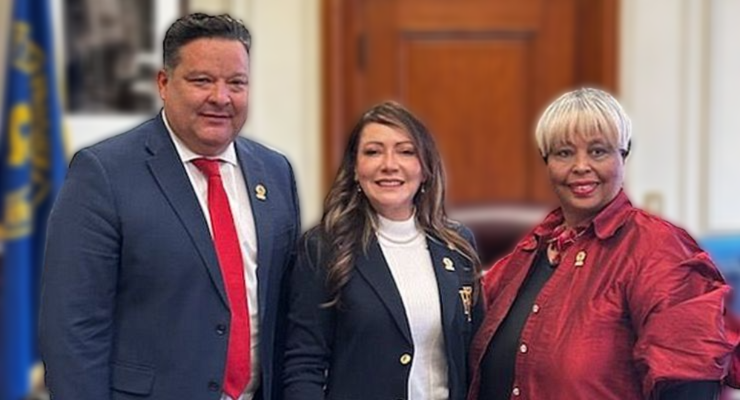
The Metro Board of Directors approved a motion Thursday to develop and implement an action plan to address homelessness within the agency’s transit system and connect people with social services and other resources.
The Board of Directors voted unanimously to support the motion introduced by L.A. Mayor Karen Bass, Los Angeles County Supervisors Janice Hahn, Lindsey Horvath, Hilda Solis, as well as City Councilwoman Katy Yaroslavsky and Director Jacquelyn Dupont-Walker — who all sit on the 13- member board. Bass, chairperson of the group, said “addressing homelessness on the system is a question of life and death.”
“We can build on the work that Metro has already begun to address homelessness on the system,” Bass said prior to the vote. “Since 2017, Metro has made strides forward to provide outreach and support for the unhoused. These past actions made clear that this board is committed to action, committed to results and committed to making progress on homelessness.”
According to the motion, the Social Resources and Homelessness Action Plan will provide a data snapshot on the state of homelessness on the Metro system, as well as regional variations, which would then be compared to data from the point-in-time homelessness count by the Los Angeles Homeless Services Authority.
The 2023 Los Angeles Homeless Count revealed an estimated 75,518 people are experiencing homelessness within L.A. County, a 10% increase from the previous year. In the city of Los Angeles, 46,260 people are experiencing homelessness, a 9% increase from the prior year, according to the count.
Additionally, the plan will identify challenges and offer strategies to engage unhoused individuals, focusing in the late evening or early morning hours. Metro will examine ways to offer support services and staff will explore funding recommendations to enact the plan.
The motion requests that Metro staff develop an emergency housing protocol, such as occurrences of extreme weather or other emergencies, which could bring online interim beds or a designated area for unhoused individuals in Metro’s system.
Metro will be requesting inclusion on LAHSA’s Coordinated Entry System Policy Council and the Continuum of Care Board, a regional planning body that coordinates housing and services funding for homeless families and individuals.
Bass recalled there were 50 deaths on Metro within the first six months of the year. While Metro does not know the cause for all those deaths, she says, “We can reasonably suspect that a majority of those were overdoses and many of those people, if not all, were unhoused.”
Addressing homelessness is also about creating a better experience for riders, Bass added.
Hahn referenced a motion she introduced last year, which focused on the agency’s end of the line policy. The motion had a particular focus on Long Beach, one of many “end of the line” communities, in which between midnight and 1 a.m., the trains go out of service to return for cleaning.
“We found ourselves having to remove dozens of people who were unhoused because that was the policy, and we understood what that policy was, but at the same time of night, what we were finding is there were no services and no help for people,” Hahn said.
She added, “It was causing problems not only for the community … but certainly for these folks who found themselves in need of some assistance and service.”
Hahn hailed the motion and described it as a next “logical step” to address homelessness.
Metro has 24 homeless outreach teams, six partnerships with community based organizations and 24-hour coverage on three lines, Hahn noted.
“But we know that this problem is not going to be solved by Metro alone. It requires partnerships, collaboration, and a comprehensive plan outlining our path forward — is part of demonstrating, I think, to partners like LAHSA, county of L.A., our cities, community based organizations of what it will take to address this challenge,” Hahn said.
Director Ara Najarian, who is a Glendale City Councilman, emphasized the importance of including a financial study to understand the breadth of the issue and the impacts on Metro.
Director and L.A. County Supervisor Kathryn Barger said mental health outreach is not from 9 a.m. to 5 p.m., it’s usually in the late evenings or on the weekends. Metro modified work schedules to better connect with unhoused people, but that was not the case when it came to end-of-line decisions, according to Barger.
“This (motion) will begin that process of coordination, and make no mistake said Barger, “People don’t care whether it’s a city problem, county’s problem or Metro’s problem, it’s all our problem.”














 1 comment
1 comment


